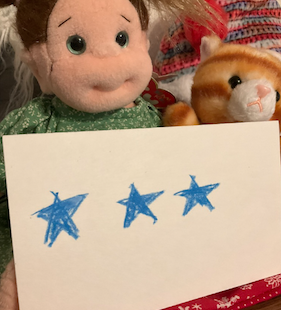The moment Marlon Brando strutted on stage in A Streetcar Named Desire in 1947, it was clear that a new kind of erotic American male had been born. It wasn’t just that Brando’s tight, sweat-stained T-shirt showed off his ripped torso and bulging biceps to perfection, nor that his unearthly beauty gave him a certain androgynous quality. It wasn’t even that his character, Stanley Kowalski, was a blue-collar hunk rather than a matinee idol. Rather it was the pent-up rage of Kowalski – that first entrance has him flinging a packet of bloody meat at his sister-in-law Blanche – which announced a man not so much unhappy in his skin as desperate to claw his way out of it. Streetcar’s submerged energies of gay love, sexual violence and insanity put the male psyche under the spotlight and found it more fragile than anyone could possibly have imagined.
In Strange Relations, Ralf Webb sets out to queer mid-century American culture. Specifically, he takes four literary giants – along with Streetcar’s Tennessee Williams there are John Cheever, Carson McCullers and James Baldwin – and watches as they warp the newly rigid protocols of post-war society. At a time of anti-communist hysteria, fractious race relations and a flight from the inner city to the tightly corralled suburbs, Webb’s quartet unleashed unholy desires that threatened to destroy the American dream from within.
Like her friend Tennessee Williams, McCullers was a southerner. She was only 23 when The Heart Is a Lonely Hunter propelled her to stardom. At the novel’s centre is the relationship between two deaf men, buttressed by a cast of fiercely desiring characters who nonetheless find it difficult to communicate with one other. It might be a stretch to read The Heart as a queer text were it not for clues drawn from McCullers’ own life. Dressed as a wayward boy in big jackets and baseball caps she frequently fell in love with women, while marrying the same man twice. Webb argues that McCullers’ starting point is always that everyone is essentially androgynous in their feelings and desires.
Not that living in this brave queer new world was ever going to be easy. With a Senate report into “sexual perversion” in 1950 declaring that homosexuals were weak, corrosive and corrupting, it was no wonder that Cheever, who was about to move with his wife and children to the suburbs, swallowed his anxieties along with copious amounts of alcohol and hoped that no one could read his mind. Yet his jitters around what it means to be a “real” man leak out in his work, from the short story Clancy in the Tower of Babel to the award-winning novel The Wapshot Chronicle, both of which feature closeted gay characters. A sceptical reader might also wonder whether self-disgust isn’t evident too in Cheever’s vehement dismissal – “repulsive” – of James Baldwin’s breakthrough Giovanni’s Room (1956), with its central portrayal of a homosexual love affair.
Of Webb’s literary quartet, it is Baldwin, the youngest, who got closest to a queer utopia. As a young man in the 1940s, he quickly realised that the white and mostly straight bohemians who gathered in the coffee houses of Greenwich Village hadn’t a clue about the bitter racism and homophobia that he had encountered growing up a subway ride away in Harlem. He lit out for Paris as soon as possible and it was while in Europe that he wrote his best-known books, including Go Tell It on the Mountain, a semi-autobiographical account of his youth as a queer teenager in a religiously observant family. Interest in his work is now undergoing a renaissance, a consequence perhaps of what one contemporary critic has called the “proto-intersectional Baldwinian question of race-and-sex-and-more”.
Strange Relations is a book built from deep research and a decided point of view. Webb feels obliged to include chunks of plot summary that inevitably tend to drag. Attempts to pick up the pace by deploying the present tense – “Tennessee’s been through several weeks of hell” or “Cheever lifts a razor to his neck” – feel contrived. Yet for the reader who is prepared to dig in and do the work, this is a richly rewarding account of a resonant cultural moment.
after newsletter promotion


